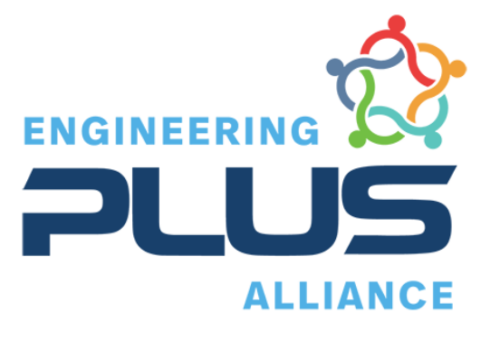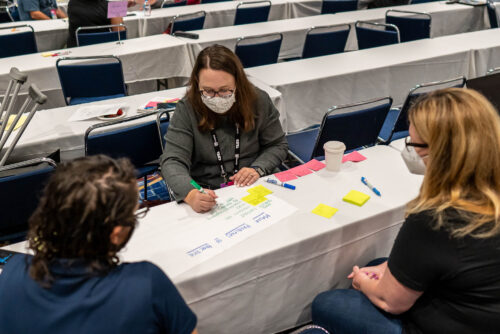
Announcing New Collaboration with CSTA: Reimagining CS Pathways: High School and Beyond
Posted
In the past four years, the proportion of US high schools offering at least one computer science (CS) course increased from one-third to one-half (source), and more growth is expected. Simultaneously, the field of computer science has shifted significantly and we have continued to learn more about what it means to teach computer science with […]
Continue Reading
Engineering PLUS Program + Webinars
Posted
The last few years have seen significant changes in the higher education landscape, including new legislation in many states that affects diversity, equity, and inclusion efforts as well as the Supreme Court’s recent decision related to affirmative action. These changes have left many in higher education wondering how to craft policies and programs that will […]
Continue Reading
“But They Just Aren’t Interested in Computer Science” (Part Three)
Posted
Written by: Julie Smith Note: this post is part of a series about the most-cited research studies related to K12 computer science education. It’s discouraging to learn that children as young as age six express the belief that boys are better than girls at programming and at robotics, and girls have less interest in or […]
Continue Reading
“But They Just Aren’t Interested in Computer Science” (Part Two)
Posted
Written by: Julie Smith Note: this post is part of a series about the most-cited research studies related to K12 computer science education. The study’s title says it all: “Gender stereotypes about interests start early and cause gender disparities in computer science and engineering.” It’s worth noting that the careful design of their studies bolsters […]
Continue Reading
Emerging Promising Practices for CS Integration
Posted
Our recently accepted paper, Emerging Practices for Integrating Computer Science into Existing K-5 Subjects in the United States, will be presented at WIPSCE 2023 in Cambridge, England. This particular qualitative work, conducted by Monica McGill, Laycee Thigpen, and Alaina Mabie of CSEdResearch.org, included interviews with researchers and curriculum designers (n=9) who have engaged deeply in […]
Continue Reading
Conducting High-quality Education Research in Computing that is Designed to Support CS for All
Posted
Join us on Wednesday, March 20th, 2024, from 1-5pm PST, in Portland, Oregon, United States (the day before ACM SIGCSE) for a workshop on conducting high-quality, equity-enabling education research in computing!!! Register using this form. This event will be for computer science education researchers who want to learn more about: Characteristics of high-quality education research, […]
Continue Reading
“But They Just Aren’t Interested in Computer Science” (Part One)
Posted
Written By: Julie Smith Note: this post is part of a series about the most-cited research studies related to K12 computer science education. When discussions about the lack of women in tech occur, it is sometimes observed that the disparities exist because girls just aren’t as interested in studying computer science in school and women […]
Continue Reading
Shout out to our interns
Posted
Last week was National Intern Day, which gave me another reason to reflect on the many students I’ve worked with over the last seven years contributing to the K-12 CS Education Research Resource Center on our site. The Resource Center has been under development since 2017. Originally funded under a National Science Foundation grant and […]
Continue Reading
Learning Isn’t Observable. So How Do We Measure It?
Posted
Written By: Julie Smith Note: This post is the second in an occasional series about learning analytics, based on the Handbook of Learning Analytics. We measure learning constantly – think of grades on spelling quizzes, SAT scores, and the bar exam. But it’s worth remembering that learning itself cannot be observed in the same way […]
Continue Reading
Learning Analytics: What Is It?
Posted
Written by: Julie Smith Note: This post is the first in an occasional series about learning analytics, based on the Handbook of Learning Analytics. Concepts that are difficult to define are sometimes compared to trying to nail Jell-O to a wall. That analogy could certainly apply to learning analytics – there’s no shortage of definitions […]
Continue Reading